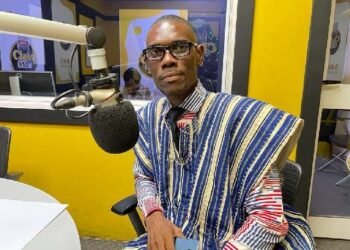The Kumasi Central Prison has decried the dilapidated state of its training facilities. However, the institution is currently calling for a renovation of the prison training facility.
The building used for teaching female inmates hairdressing is in dire need of renovation. The building, which is over 30 years old, is poorly equipped and unable to meet its intended purpose of providing inmates with valuable vocational skills.
Meanwhile, the Assistant Director of Prisons, Asiedu Beatrice Adjei voiced concerns about the deteriorating condition of the training center during an event where the Parent Teacher Association (PTA) of Yaa Asantewaa Girls Senior High School (SHS) donated food items to the prison. She emphasized the importance of the center in equipping inmates with skills that would help them reintegrate into society upon their release but lamented the poor state of both the infrastructure and the equipment available.
“Our salon where we teach them hairdressing, the equipment is out of date.The building is dilapidated [and the ] structure is very very old, over 30 years old.”
Asiedu Beatrice Adjei the Assistant Director of Prisons
The central prison has been providing training in hairdressing to female inmates for decades, with the hope that they would be able to use these skills to secure employment or start their businesses after their release.
However, the outdated equipment and the deteriorating condition of the building have severely limited the effectiveness of the training.
According to Beatrice Adjei, the central prison’s training programs are a crucial part of the reformation process for inmates.
By providing them with skills, the prison aims to reduce recidivism and ensure that inmates can reintegrate into society as productive citizens. However, she also pointed out that the current state of the training center makes it difficult for the prison to achieve these goals.
“We wish that somebody will come and assist us to expand the salon and give us the state-of-the-art equipment so that our salon can be one of a class.’’
Asiedu Beatrice Adjei the Assistant Director of Prisons
Madam, Beatrice Adjei called on stakeholders to support the prison in its efforts to rehabilitate the facility.
In addition to the hairdressing center, the prison also offers training in tailoring. While a company has already built a shop for this purpose and equipped it with machines, some of these machines have since broken down, further hindering the training process.
“We also want to say that where we learn tailoring, a company has come to build a shop for us, they have equipped that with machines, but some of them have broken down. We wish to have replacements so that the training can be successful.”
Asiedu Beatrice Adjei the Assistant Director of Prisons
The lack of adequate tools and equipment is not only affecting the quality of training but also the ability of the inmates to successfully reintegrate into society. Upon their release, many of the inmates struggle to put their newly acquired skills to use because they do not have access to the necessary tools and startup capital.
Madam Beatrice Adjei highlighted the issue, stating; “When we give them the training, which is called the rehabilitation activity, and they are going out on discharge, usually they go with empty hands because we don’t have the tools and the equipment to restart and give them startup capital.”
The situation at Kumasi Central Prison underscores the broader challenges faced by correctional facilities in Ghana. Many prisons lack the resources and infrastructure needed to provide inmates with meaningful rehabilitation opportunities, which in turn affects the success of these programs in reducing recidivism.
Improved Facility and a Chance for a Better Life
The call for support to reshape and retool the training center at Kumasi Central Prison is not just about improving the facilities; it is about giving inmates a chance at a better life after they serve their sentences.
The dilapidated state of the building used for training female inmates at Kumasi Central Prison is a pressing issue that needs urgent attention. The prison authorities are appealing for support from both the government and private sector to rehabilitate the facility and equip it with modern tools.
Without this support, the vocational training programs at the prison will continue to struggle, leaving inmates ill-prepared for life after incarceration.
READ ALSO; McBrown Advises On The Need For Individuals to Research, Equip Themselves




















